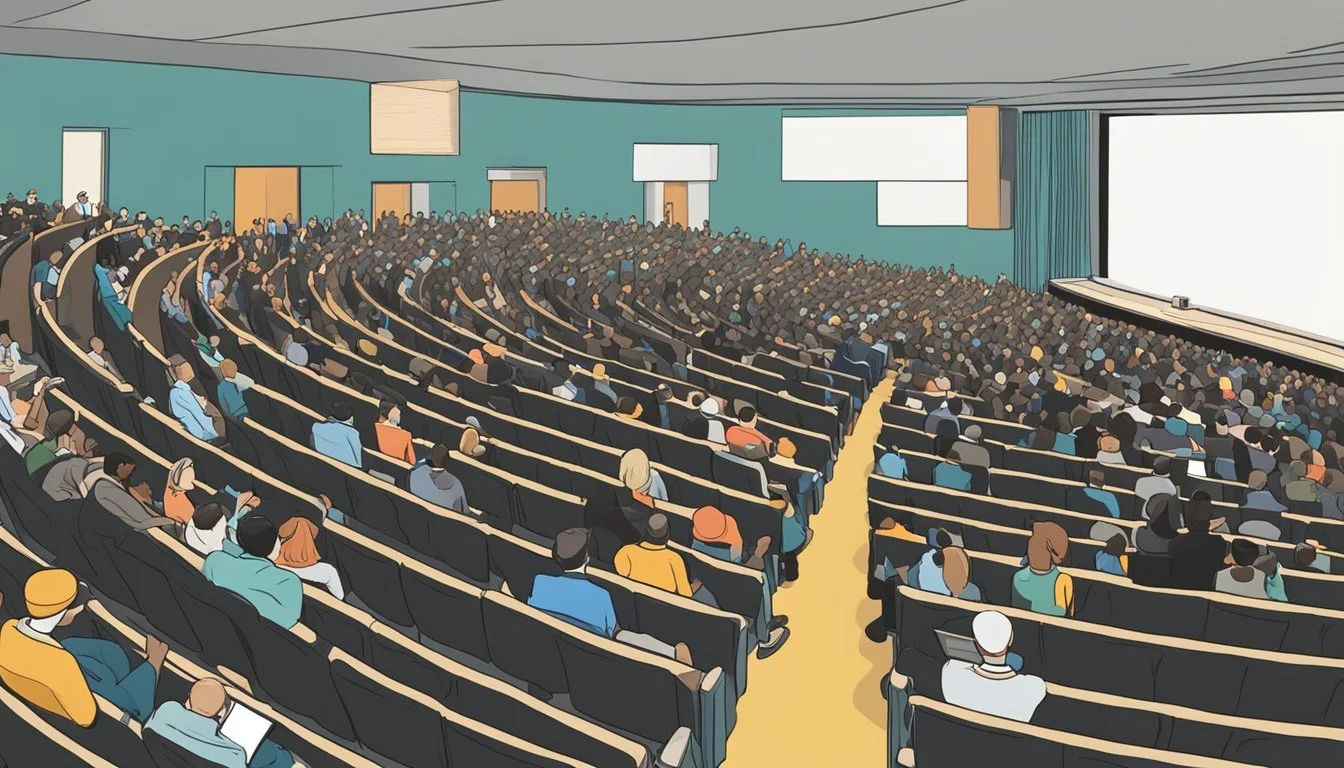Dr. Death: How a Medical Horror Podcast Became Must-See TV
From Audio Sensation to Chilling Television Drama
The chilling true story of neurosurgeon Christopher Duntsch shocked listeners when it premiered as the "Dr. Death" podcast in 2018. Now, this medical nightmare has been transformed into a gripping television series on Peacock, bringing the horrifying tale to life on screen.
Peacock's eight-episode adaptation of "Dr. Death" explores how a doctor meant to heal instead left a trail of maimed and deceased patients in his wake. The series delves into Duntsch's negligent practices and the systemic failures that allowed him to continue operating despite clear evidence of incompetence. Starring Joshua Jackson as the titular character, the show aims to both entertain and infuriate viewers with its portrayal of real-life medical malpractice.
The transition from podcast to television has allowed for a deeper examination of the case, providing visuals to accompany the already disturbing narrative. By dramatizing the events, "Dr. Death" creates a visceral viewing experience that underscores the gravity of Duntsch's actions and the devastating impact on his patients and their families.
The Descent Into Horror: Unveiling 'Dr. Death'
The TV adaptation of "Dr. Death" brings a chilling medical nightmare to the screen. It exposes the disturbing story of Dr. Christopher Duntsch and the devastating impact of his actions on patients and the medical community.
Conceptual Genesis of the Series
"Dr. Death" originated as a popular true crime podcast by Wondery in 2018. The podcast's gripping narrative caught the attention of TV producers, who saw its potential for a compelling visual adaptation. Peacock picked up the series, transforming the audio story into an eight-episode drama.
The show's creators aimed to delve deeper into the psychological aspects of Duntsch's character. They expanded on the podcast's foundation, adding dramatic elements to enhance the storytelling while staying true to the factual core of the case.
Portrayal of Christopher Duntsch
Joshua Jackson takes on the challenging role of Dr. Christopher Duntsch. His performance captures the complexity of a surgeon who left a trail of devastation in his wake. Jackson's portrayal highlights Duntsch's initial charm and ambition, gradually revealing the darker aspects of his personality.
The series doesn't shy away from depicting the horrific outcomes of Duntsch's surgeries. It shows how he injured 33 out of 38 patients in less than two years, with two deaths directly attributed to his actions in the operating room.
Duntsch's descent into infamy is depicted through a combination of flashbacks and present-day scenes. This structure allows viewers to understand the full scope of his actions and their consequences.
Meet the Cast: From Joshua Jackson to Alec Baldwin
The series boasts a star-studded cast that brings depth to the complex narrative. Joshua Jackson leads as Dr. Christopher Duntsch, delivering a nuanced performance of the titular "Dr. Death."
Alec Baldwin portrays Dr. Robert Henderson, a neurosurgeon who becomes suspicious of Duntsch's practices. Baldwin's gravitas lends weight to the growing concern within the medical community.
Christian Slater takes on the role of Dr. Randall Kirby, a vascular surgeon who joins forces with Henderson to stop Duntsch. Slater's intensity fuels the urgency of their investigation.
The ensemble cast skillfully portrays the various patients, families, and medical professionals affected by Duntsch's actions. Their performances contribute to the show's emotional impact and authenticity.
Behind the Scenes: The Making of a Medical Nightmare
The transformation of "Dr. Death" from a gripping podcast to a riveting television series involved meticulous planning and creative vision. This process brought the chilling true story to life on screen, captivating audiences with its haunting portrayal of medical malpractice.
The Podcast Origins
The "Dr. Death" podcast, produced by Wondery, gained widespread popularity for its stark examination of Dr. Christopher Duntsch's medical negligence. Its success caught the attention of television producers, who saw potential for a visual adaptation.
The podcast's narrative structure provided a solid foundation for the series. It offered a wealth of real-life details and testimonies that could be translated into compelling scenes and character arcs.
Wondery's approach to storytelling, blending investigative journalism with dramatic elements, influenced the show's tone. This style helped maintain the authenticity of the original podcast while allowing for cinematic interpretation.
Creative Direction with Patrick MacManus
Patrick MacManus, serving as showrunner and executive producer, played a crucial role in shaping the series. He focused on maintaining the podcast's journalistic integrity while enhancing its dramatic elements for television.
MacManus worked closely with the original podcast creators to ensure accuracy. He emphasized the importance of portraying the real-life victims and their stories with respect and sensitivity.
The creative team made deliberate choices in pacing and structure. They aimed to balance the medical aspects with character development, creating a multifaceted narrative that engaged viewers beyond the shocking medical mistakes.
Filming and Production Insights
Production of "Dr. Death" involved careful attention to medical accuracy. A doctor was present on set during surgically heavy scenes to consult with the cast and crew, ensuring authentic depictions of medical procedures.
The cast members, including those portraying doctors, observed real surgeries as part of their preparation. This firsthand experience helped them accurately portray the intensity and precision required in operating rooms.
Filming locations were chosen to recreate the atmosphere of hospitals and medical facilities. Set designers worked to create realistic environments that would enhance the authenticity of the scenes.
The production team faced challenges in portraying graphic medical content while maintaining viewer engagement. They used a combination of practical effects and visual techniques to depict surgical procedures without becoming overly gratuitous.
The Chilling Real-Life Cases
The Dr. Death podcast and TV series draw from shocking true stories of medical malpractice. Two cases stand out for their egregious violations of patient trust and medical ethics.
The Terrifying Tale of Christopher Duntsch
Christopher Duntsch, a neurosurgeon in Texas, left a trail of devastation during his brief medical career. Between 2011 and 2013, Duntsch operated on 38 patients, with 33 suffering severe injuries.
Two patients died due to his surgical errors. One victim became a quadriplegic. Duntsch's reckless procedures included leaving surgical tools inside patients and severing critical nerves.
Despite mounting complaints, he continued practicing until his medical license was finally revoked in 2013. Duntsch was convicted of injury to an elderly person in 2017 and sentenced to life in prison.
Exploring Paolo Macchiarini's Deceits
Paolo Macchiarini, a thoracic surgeon, gained fame for pioneering synthetic trachea transplants. His revolutionary procedures were later revealed to be deadly deceptions.
Macchiarini performed experimental surgeries on at least eight patients between 2011 and 2014. Seven of these patients died. He falsified data, misrepresented success rates, and ignored ethical protocols.
Investigations uncovered that Macchiarini had lied about his credentials and fabricated research results. In 2022, he was convicted of causing bodily harm and given a suspended sentence in Sweden.
Thematic Exploration: Impact and Influence
The Dr. Death podcast and subsequent TV adaptation brought critical medical issues to the forefront of public consciousness. It sparked discussions about patient safety, professional accountability, and systemic failures in healthcare.
Medical Ethics in the Spotlight
The Dr. Death story highlighted significant ethical concerns in medicine. It exposed vulnerabilities in the healthcare system that allowed a dangerous surgeon to continue practicing despite clear signs of incompetence.
The case raised questions about the effectiveness of medical oversight and the responsibility of hospitals to protect patients. It underscored the importance of thorough background checks and performance monitoring for medical professionals.
The narrative also explored the ethical dilemma faced by Dr. Duntsch's colleagues. It showcased the challenges of reporting suspected malpractice and the potential consequences of remaining silent.
Public Reception and Effect on the Medical Community
Dr. Death captivated audiences with its shocking true story, generating widespread public interest in medical malpractice issues. The podcast and TV series educated listeners and viewers about the complexities of the healthcare system.
The medical community responded to the increased scrutiny by reassessing safety protocols and accountability measures. Many hospitals and medical boards reviewed their procedures for evaluating and disciplining physicians.
The story prompted some patients to become more proactive in their healthcare decisions. It encouraged them to research their doctors' backgrounds and ask more questions about proposed treatments.
Healthcare professionals used the case as a learning opportunity, emphasizing the importance of ethical practice and vigilance in identifying potential risks to patient safety.
Analyzing the Audience's Reception
The TV adaptation of "Dr. Death" garnered significant attention and sparked intense reactions from viewers and critics alike. Its gripping portrayal of medical malpractice and institutional failures resonated deeply with audiences.
Critical Acclaim and Criticism
Critics praised "Dr. Death" for its compelling storytelling and strong performances. Joshua Jackson's portrayal of Dr. Christopher Duntsch received particular acclaim for its chilling authenticity. Many reviewers highlighted the show's ability to balance true crime elements with a thoughtful examination of systemic issues in healthcare.
Some critics, however, felt the series sensationalized certain aspects of the true story. They argued that the dramatization occasionally overshadowed the more nuanced exploration of medical ethics and accountability.
Overall, the show maintained a positive critical reception, with many noting its success in translating the podcast's gripping narrative to the screen.
Viewer Engagement and Statistics
"Dr. Death" quickly became one of Peacock's most-watched original series upon its release. The true crime genre's popularity contributed significantly to the show's success, attracting viewers fascinated by real-life medical horrors.
Social media buzz surrounding the series was substantial. Viewers engaged in lively discussions about the case, sharing their shock and disbelief at the events portrayed. Many expressed heightened awareness of patient advocacy and medical safety issues after watching.
Streaming numbers for "Dr. Death" remained strong throughout its run, indicating sustained viewer interest. The show's ability to maintain engagement beyond its initial release demonstrated its impact on audiences and its place in the true crime television landscape.
Multimedia Outreach: Streaming and Availability
"Dr. Death" has expanded beyond its podcast origins to become a widely accessible TV series. The show's availability varies depending on location and platform, with some limitations for international viewers.
Accessing 'Dr. Death' on Peacock
"Dr. Death" is exclusively available on Peacock, NBCUniversal's streaming service. US customers can watch all episodes of the series with a Peacock subscription. The platform offers different tiers, including a free option with limited content and paid plans that provide full access to the show.
Peacock's user-friendly interface makes it easy to find and stream "Dr. Death" on various devices, including smart TVs, mobile phones, and tablets.
Global Distribution and Limitations
While "Dr. Death" has garnered international interest, its availability outside the United States is limited. The show is not yet available in many territories due to licensing agreements and regional streaming rights.
Some countries may have access to the series through local streaming platforms or cable networks that have secured distribution rights. However, many international audiences are still waiting for the opportunity to watch the dramatized version of this medical horror story.
Viewers should check their local streaming services or contact regional broadcasters for information on potential future releases in their area.
Continuation and Evolution: The Road Ahead
Dr. Death's success has paved the way for future seasons and expanded true crime narratives. The show's adaptation from podcast to television series demonstrates its potential for growth and exploration of new medical horror stories.
Season 2 and Beyond
Season 2 of Dr. Death focuses on the story of Dr. Paolo Macchiarini, known as the "Miracle Man." This new installment explores another real-life medical horror, expanding the show's scope beyond its initial focus on Christopher Duntsch.
The anthology format allows Dr. Death to tackle different cases in each season. This approach keeps the content fresh and engaging for viewers. Each new season can delve into unique aspects of medical malpractice, ensuring a diverse range of stories.
Producer Ashley Michel Hoban has addressed the possibility of a third season. While no official announcement has been made, the show's success and the abundance of true medical crime stories suggest potential for future installments.
Future Prospects in True Crime Narratives
Dr. Death's evolution from podcast to television series highlights the growing interest in true crime content across various media platforms. This trend is likely to continue, with more podcasts potentially being adapted for the screen.
The show's format allows for exploration of different medical specialties and types of malpractice. Future seasons could focus on:
Pharmaceutical scandals
Unethical medical research
Fraudulent alternative medicine practices
As the true crime genre evolves, Dr. Death and similar shows may incorporate new storytelling techniques. Interactive elements, documentary-style footage, or expert interviews could enhance viewer engagement and provide deeper insights into medical ethics.
The success of Dr. Death may inspire more niche true crime narratives, particularly in the medical field. This could lead to a broader public understanding of patient rights and medical accountability.






